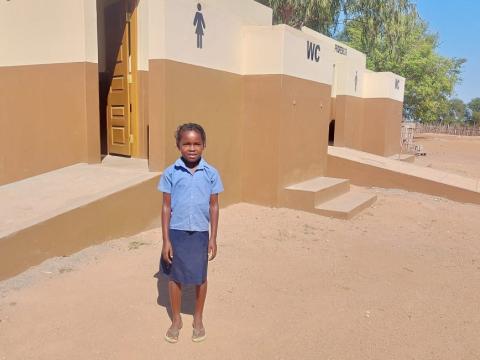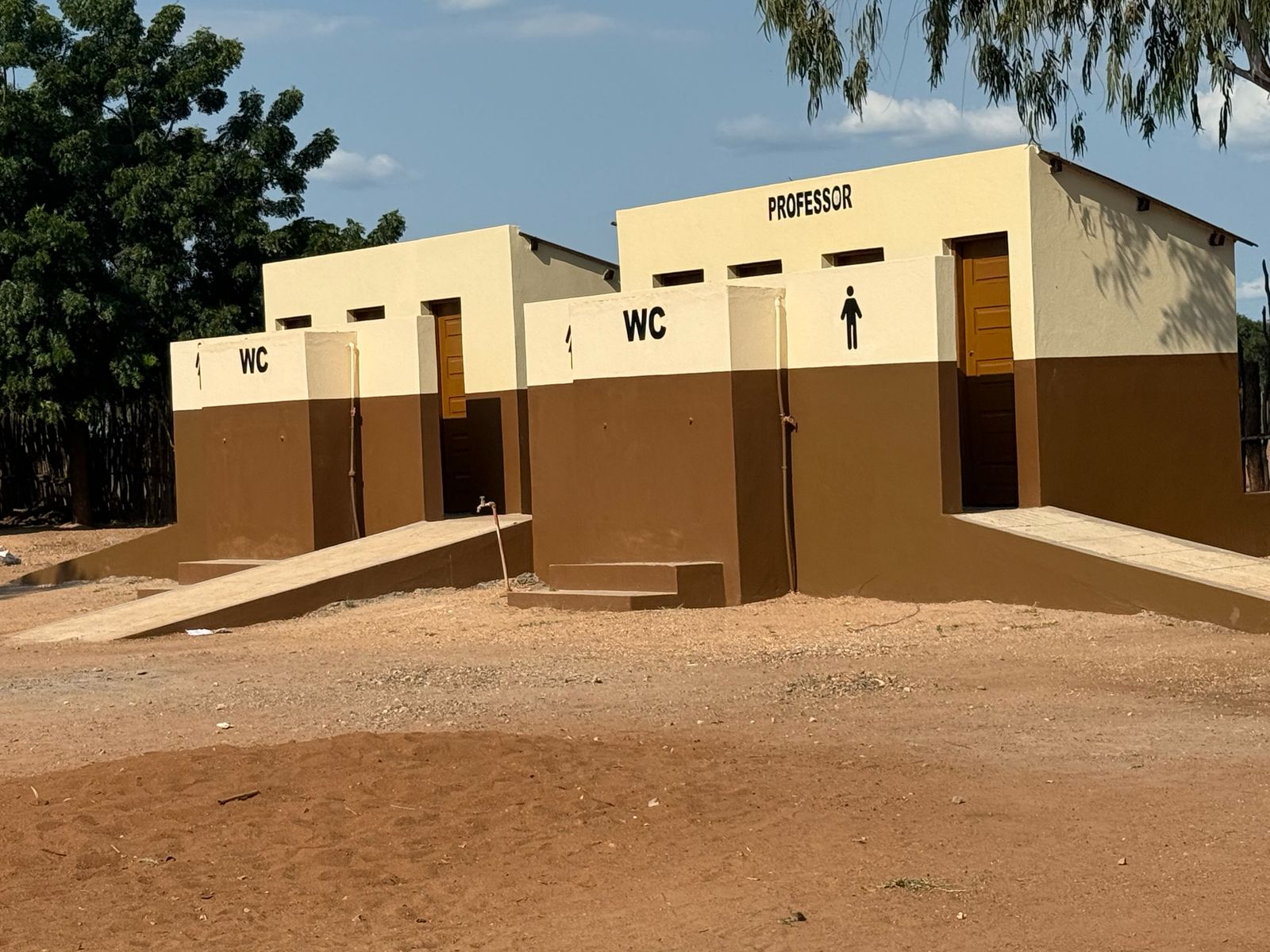Construction of New Toilets at School Restores Dignity to Over 380 Children in Mabalane, Mozambique

By Álvaro Malamba, Communication and Advocacy Coordinator
For a long time, in some schools in Mabalane District, Gaza Province, the simple act of going to the toilet was risky. The few existing structures: fragile, makeshift constructions of sticks and grass, offered no safety or privacy. Boys and girls had to share the same space, often without doors, in conditions that compromised their health, dignity, and well-being.
“We used to squat over holes covered with grass. It was frightening, especially for the girls,” shares the headteacher of one of the beneficiary schools. “Seeing pupils, boys and girls, sharing those facilities with no doors, no privacy… it broke my heart. But we had no alternative.” Monteiro Macamo the school’s headteacher

The lack of proper toilets affected far more than just comfort, it discouraged attendance and left girls especially vulnerable to humiliation and health risks.
Cheide an 8-year-old primary school pupil, remembers it all too well:
“Sometimes I cried before leaving home to go school. I was ashamed. Sharing the same space with the boys was really hard. Some of my friends gave up or transferred to schools in town where things were better. I didn’t have that choice.”
With support from World Vision Mozambique (WV-Moz), under its Water, Sanitation and Hygiene (WASH) programme, five new toilet blocks were built from the ground up, with separate facilities for boys, girls, and teachers. In addition to addressing hygiene concerns, the new toilets also brought an unexpected improvement: better classroom flow.
“It was common to stop teaching in the middle of a lesson just to find a halfway decent toilet,” says Monteiro. “It was embarrassing and a huge waste of time. Now it’s different. The toilets are right here at the school and they’re in good condition. It’s about time and dignity.”
These improvements are just one part of WV-Moz’s objective to ensure children are protected from infection and disease, being healthy and well nourished, and with access to clean water, improved sanitation and basic services.
“I feel so much better now,” Cheide says, with a shy but proud smile. “I’m not afraid to go to school anymore.”
In 2024 WV-Moz built more than 21,360 improved latrines, benefiting more than 66,000 people, where more than 50 percent of these numbers are children. The achievements were possible thanks to contributions from individual donors, entities such as UNICEF, and Charity Water.